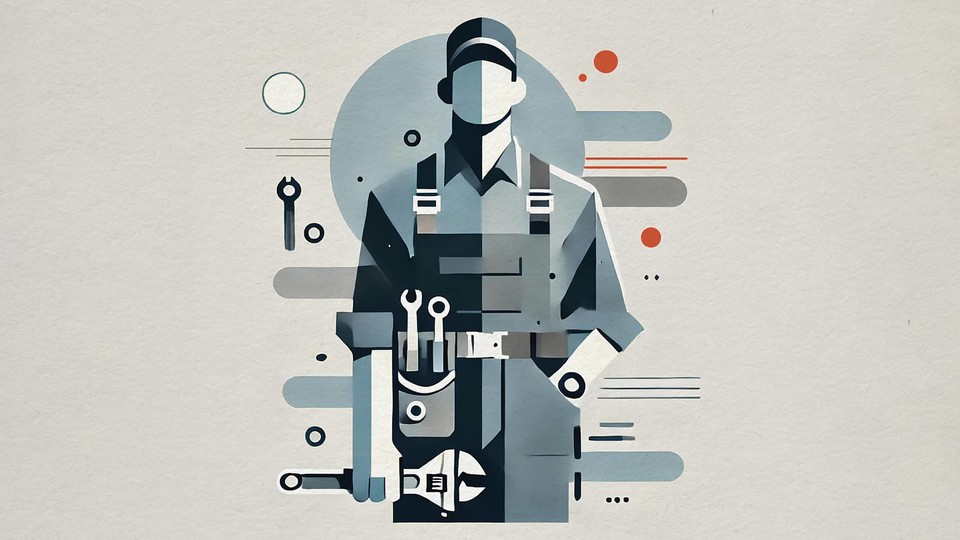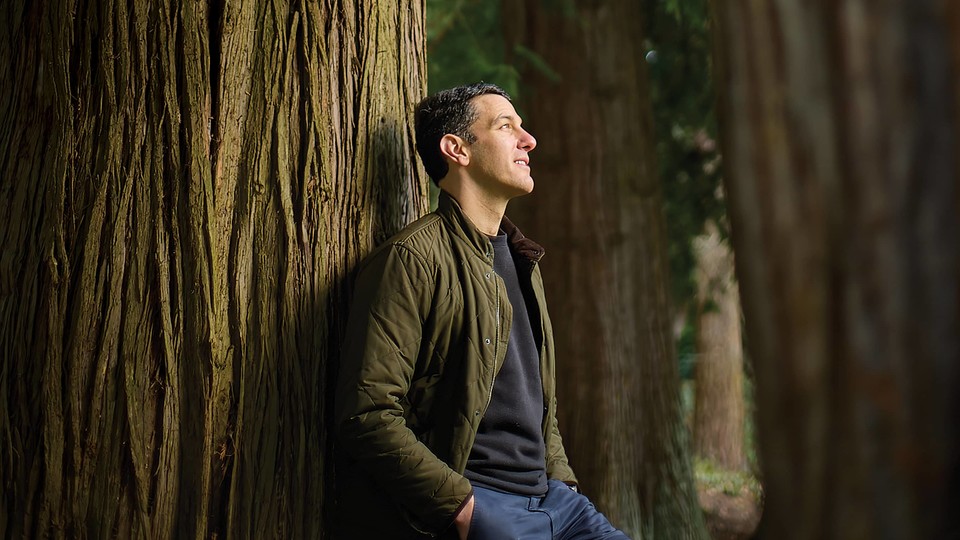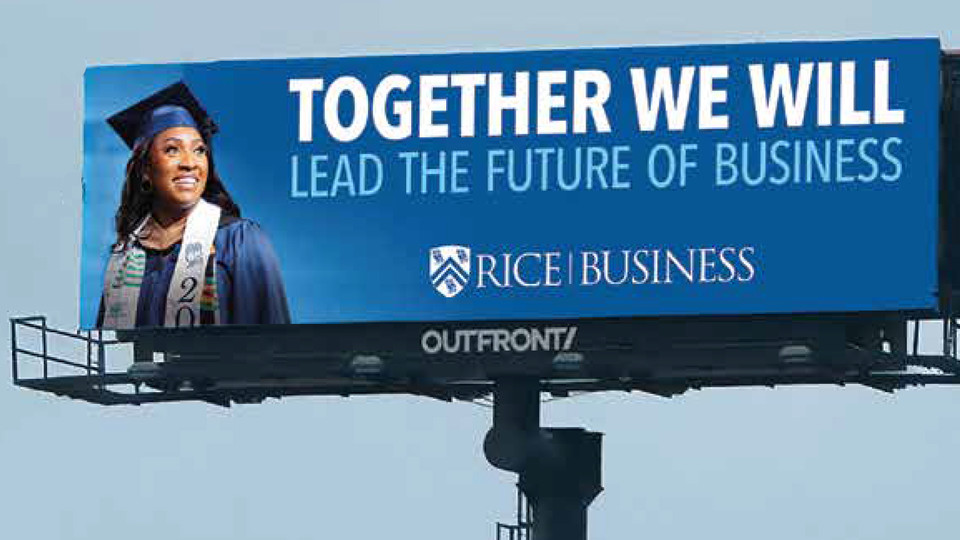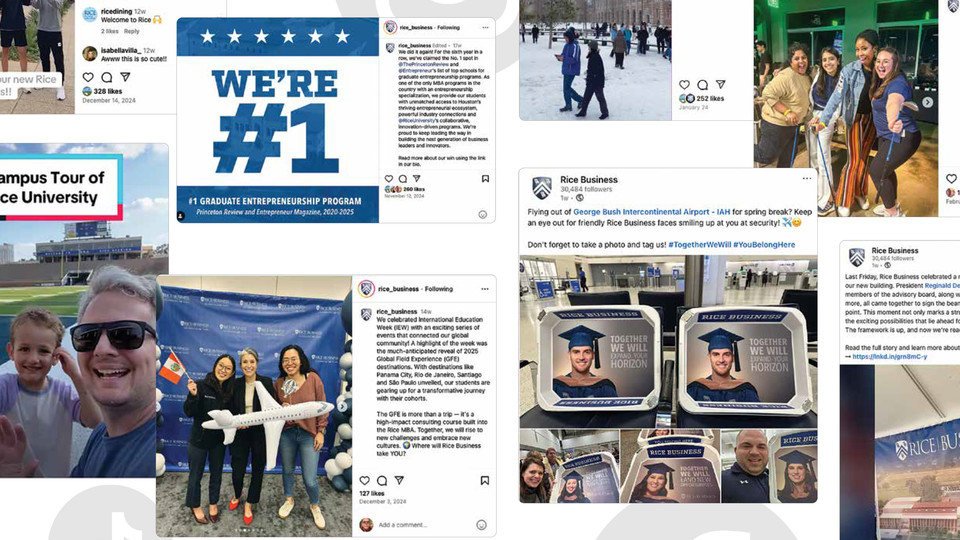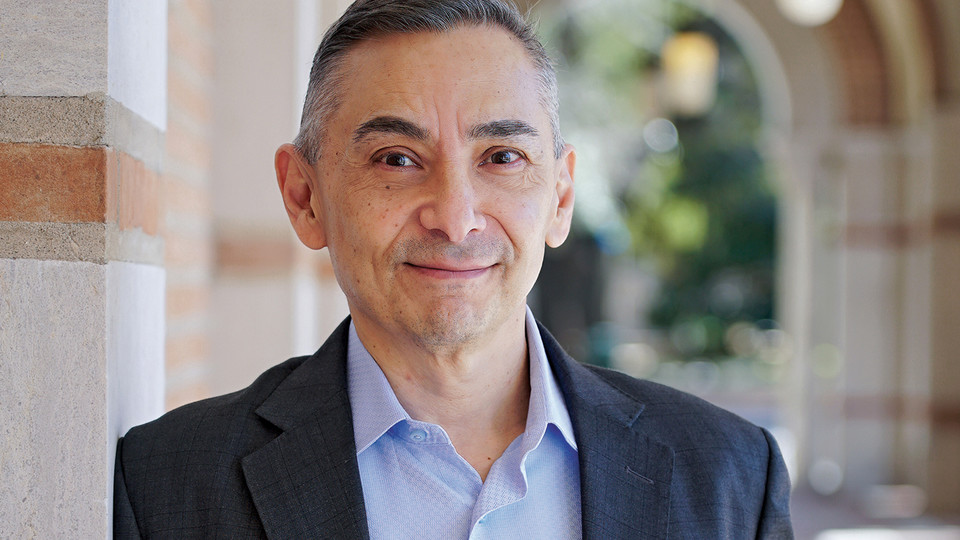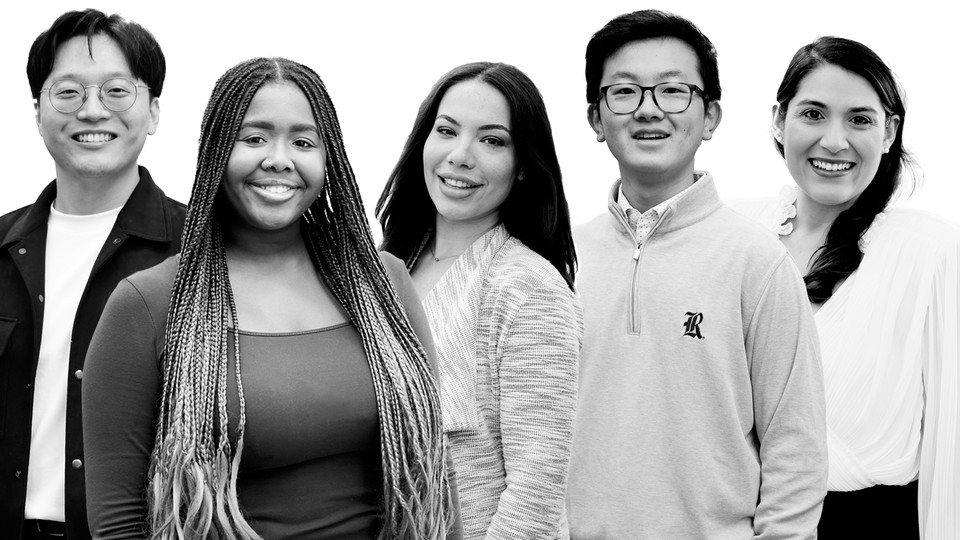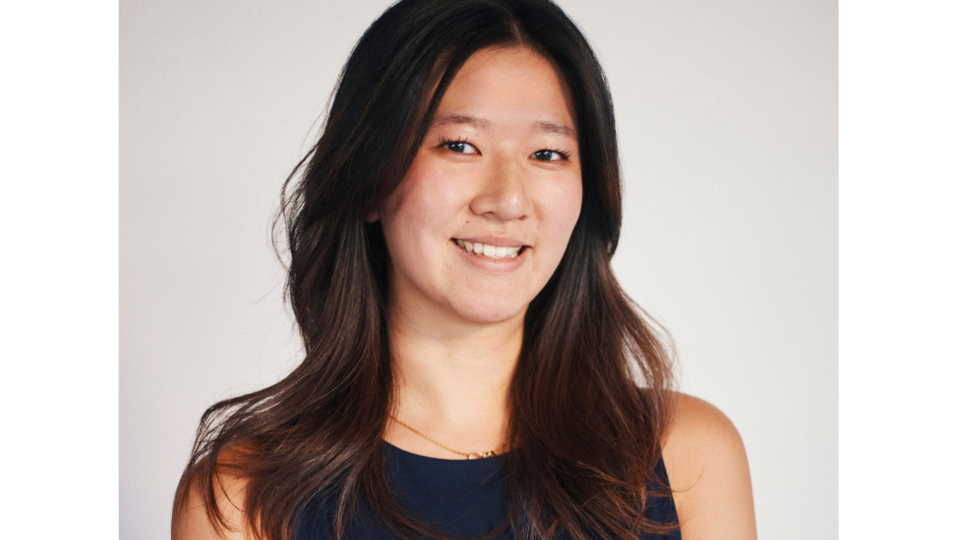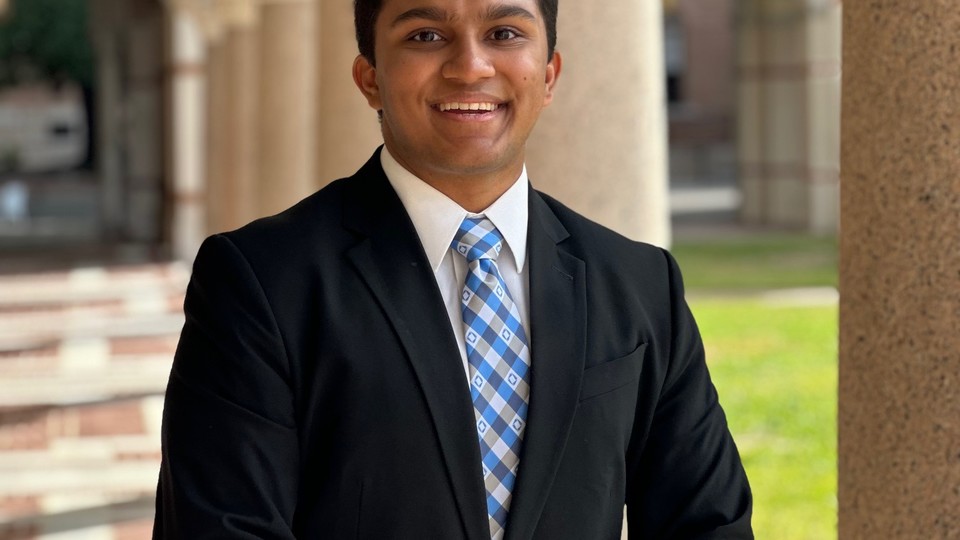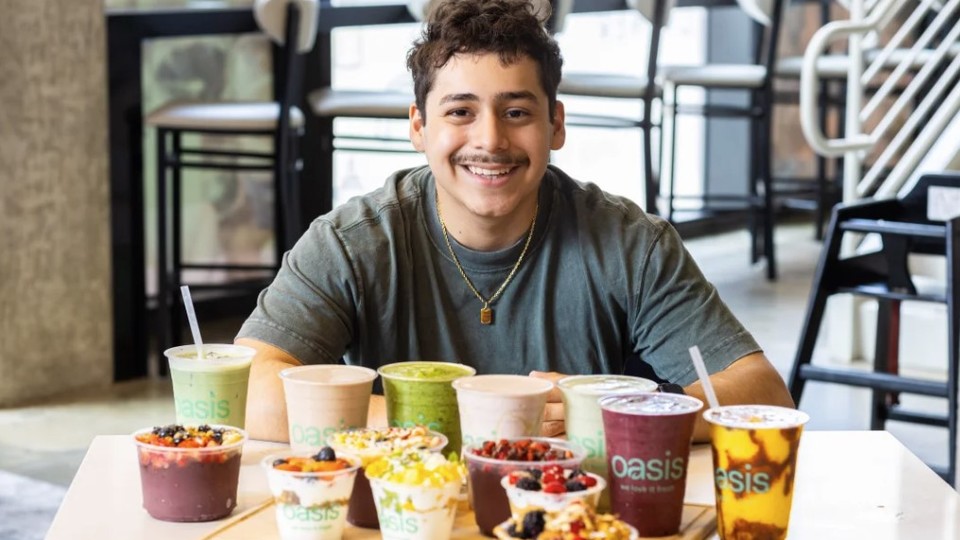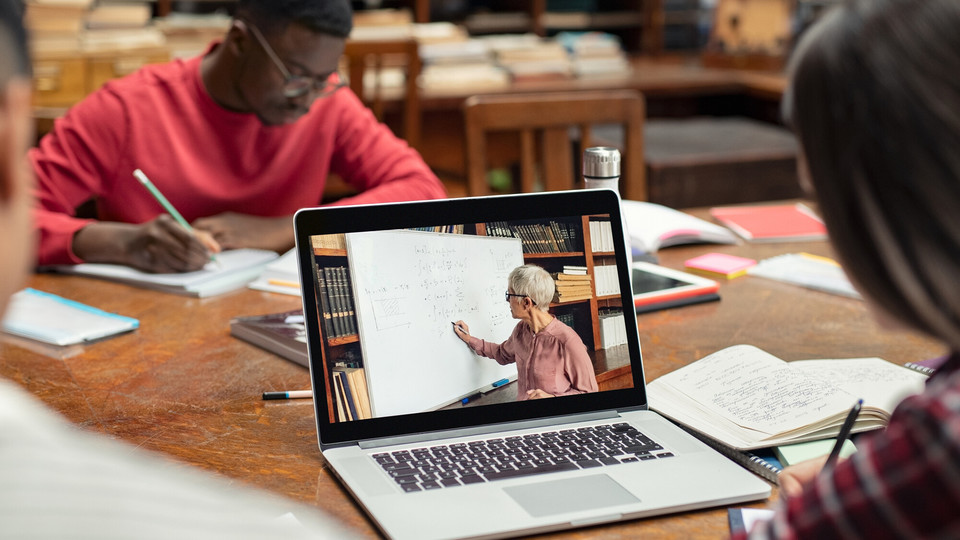Rice Business Plan Competition doles out $2M to 2025 student teams
Celebrating its 25th year, the Rice Alliance for Technology and Entrepreneurship hosted the celebrated Rice Business Plan Competition this month, doling out more than $2 million in investment and cash prizes to the top-performing teams.
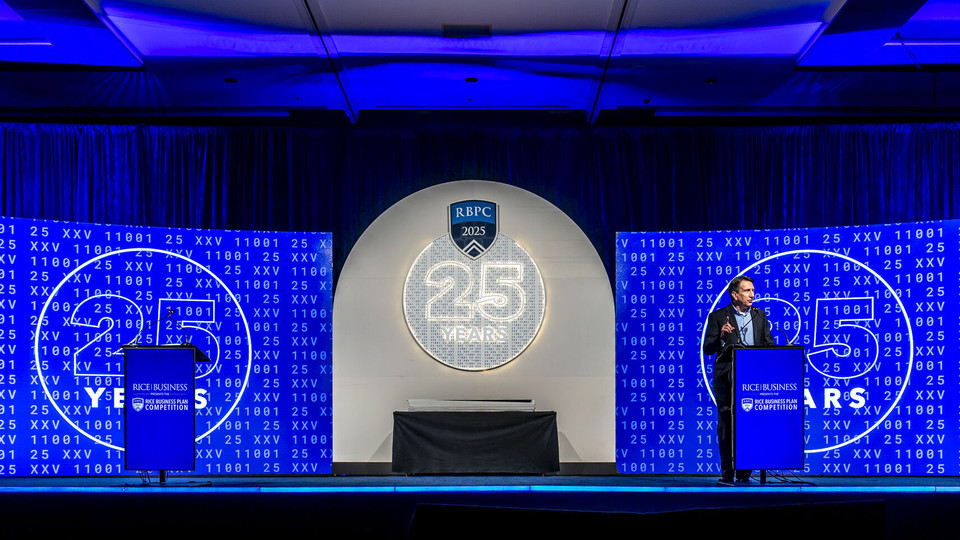
Can a Banking App Really Save You Money?
Rice Business research shows that when consumers have a full view of their finances in a single mobile app, they’re less likely to incur non-sufficient funds (NSF) fees.


Based on research by Bruce Carlin, Arna Olaffson (Copenhagen Business School) and Michaela Pagel (Washington University)
In 2023, a quarter of U.S. consumers resided in a household that received either an overdraft fee or a non-sufficient funds (NSF) fee.
Mobile banking apps promise convenience, but can they also help users make better financial decisions? A recent study by Bruce Carlin and research colleagues at Copenhagen Business School and Olin Business School at Washington University suggests they can — by aggregating information from all of a consumer’s accounts into a single accessible place.
The researchers analyzed transaction data from an Icelandic financial aggregator and found that after the company released a mobile app version of their website, the financial habits of their customers improved, lowering the likelihood of incurring NSF fees.
According to their paper, published in Review of Finance:
- NSF fees dropped by 38.4% within 24 months of the app’s release.
- Certain groups benefited more — women, high-income individuals and baby boomers saw the biggest gains. So did those who incurred higher fees before the app’s introduction.
- Information access — not education — drove better decisions. Consumers didn’t need notifications or nudges. Simply making financial data more accessible helped them avoid NSF fees.
The key takeaway? If you want to cut down on costly overdraft fees, a mobile banking app may help. By reducing the friction of checking balances, these tools make it easier to stay on top of your finances — and keep more money in your pocket.
Rice Business Wisdom
When consumers have a full view of their finances in a single mobile app, they’re less likely to incur non-sufficient funds (NSF) fees.
Keep Exploring
The Hidden Inequality in Auto Lending
Each year, an estimated 80,000 auto loan applications in the U.S. are denied to minority borrowers due to racial bias.


Based on research by Alexander Butler, James Weston and Erik J. Mayer (University of Wisconsin)
Each year, an estimated 80,000 auto loan applications in the U.S. are denied to minority borrowers due to racial bias.
For millions of Americans, cars aren’t just a fun way to get around — they’re a necessity. They provide access to jobs, schools and essential services. They help build financial independence and unlock opportunities.
Yet for many minority borrowers, the road to an auto loan is often littered with hidden costs. According to groundbreaking research published in The Review of Financial Studies, an estimated 80,000 auto loans are denied each year due to racial prejudice.
In their study, Rice Business professors Alexander Butler and James Weston (along with Rice Business Ph.D. alum and University of Wisconsin professor Erik Mayer ’18) uncover troubling inequalities in America’s auto loan market. Using a dataset that spans over a decade, they find that Black and Hispanic borrowers face higher rejection rates and steeper borrowing costs than white borrowers, even when they have comparable credit profiles.
What makes the auto loan market more susceptible to racial bias compared to other lending markets?
Alexander Butler: Auto lending is unique because of how much it depends on direct personal interactions between borrower and lender. Unlike something like credit cards, which are mostly automated, a lot of these decisions happen face-to-face. That creates room for bias, even if it’s unintentional.
James Weston: Exactly. And when you add in the fact that auto lending doesn’t have the same strict regulations as, say, a house mortgage, you can see how these disparities aren’t just possible — they’re almost baked into the system. It’s a perfect storm of personal discretion and lack of oversight.
Your study shows that Black and Hispanic borrowers are less likely to default on loans despite facing higher costs and stricter standards.
JW: This is one of the findings that confirms these loan rejections are not grounded in factors like creditworthiness. Rather, lenders are underestimating the creditworthiness of Black and Hispanic borrowers from the start.
AB: Right, and that’s where it becomes so frustrating. These borrowers are being charged more and held to higher standards — not because they’re higher risk, but because of biased assumptions.
Your research highlights the impact of policies that have actually reduced racial disparities. What kinds of policies or practices could make the auto loan market more equitable?
AB: It’s certainly a promising area for future research. But we know that between 2013 and 2018, the Consumer Financial Protection Bureau (CFPB) increased antidiscrimination enforcement efforts, leading to a 60% decrease in the additional interest that minority borrowers pay on auto loans. But Congress nullified the initiative.
JW: Accountability is key. Antidiscrimination policies like this make auto lenders think twice about how they treat borrowers. It’s certainly possible that bringing back that kind of oversight would help create a fairer system where everyone has the same shot.
Rice Business Wisdom
Each year, an estimated 80,000 auto loan applications in the U.S. are denied to minority borrowers due to racial bias.
You May Also Like
Keep Exploring
Too Much Information: The Surprising Cause of “Panic Buying”
In times of crisis, information overload can drive seemingly irrational stockpiling behavior — but calling it “panic buying” misses the bigger picture.


Based on research by Amit Pazgal (Rice Business) and Yuanfang Lin (University of Guelph)
We live in an age of uncertainty — where global crises like pandemics, wars and natural disasters disrupt daily life. Yet, even in turbulent times, people must make choices about essentials — food, finances, health, shelter, etc. How do they determine the best course of action when the future is unclear?
New research from Amit Pazgal, the Friedkin Professor of Management at Rice Business, and Yuanfang Lin, associate professor in the Department of Marketing and Consumer Studies at the University of Guelph, explores how uncertainty shapes consumer decision-making — especially when it comes to stockpiling behavior.
The study, published in the Journal of Retailing and Consumer Services, suggests that stockpiling behaviors — like the rush for toilet paper at the start of the COVID-19 pandemic — may stem not from irrational panic but rather from a rational response to an overwhelming and often conflicting information landscape.
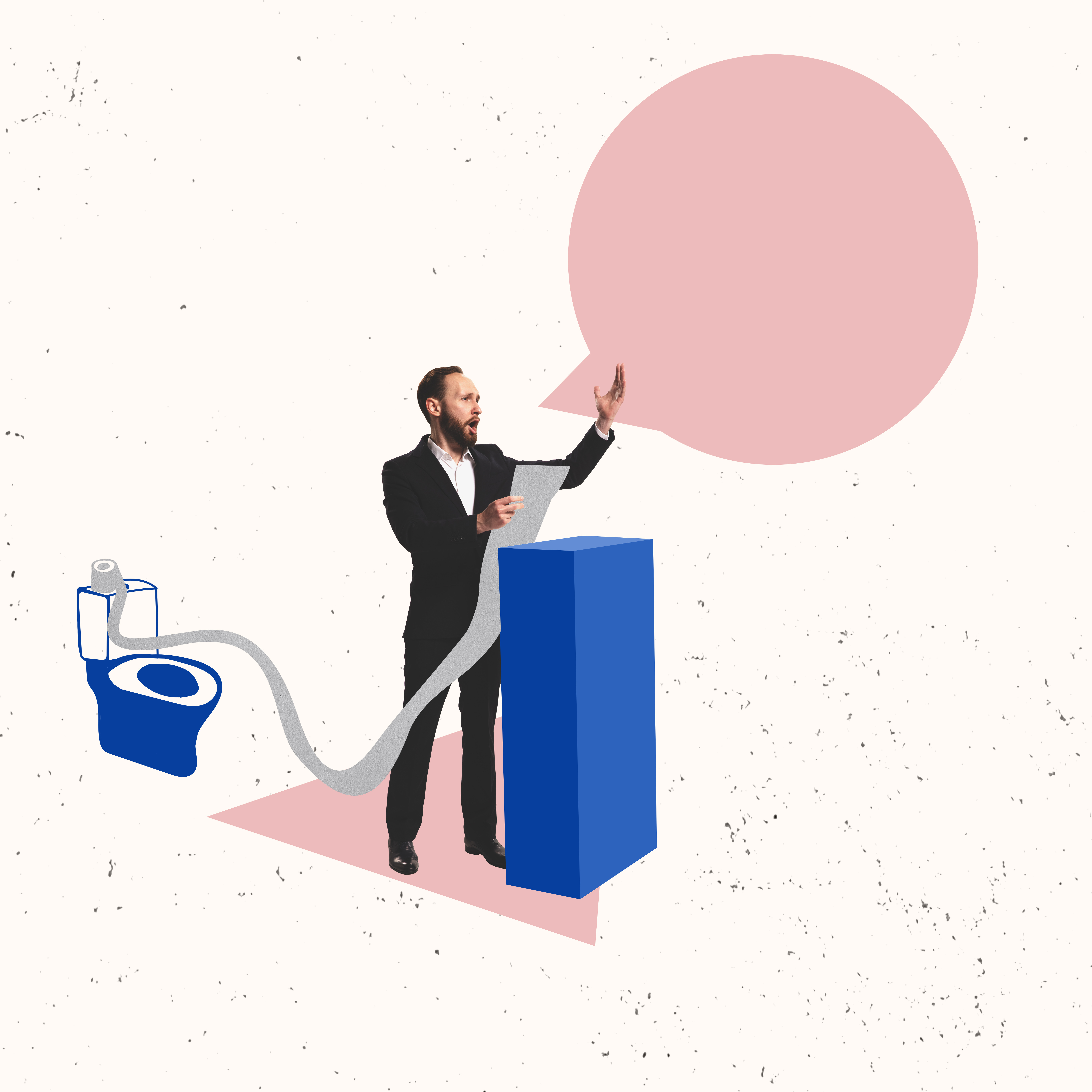
More Information, More Action — Until It’s Too Much
During the early days of the pandemic, consumers faced an avalanche of news — some of it contradictory. They sought out information to make sense of the crisis, adjusting behaviors accordingly. As uncertainty loomed, many chose to act, whether by stockpiling supplies, seeking vaccination or reassessing financial plans.
As consumers gather more information, they are prone to take action. But at a certain point, the study shows, such benefits of gathering more information diminish, leading instead to decision-making paralysis.
“Mass uncertainty can lead to purchasing behavior that seems irrational,” says Pazgal. “At the beginning of the COVID-19 pandemic, we saw people stockpiling toilet paper, without room to store it.”
At a glance, these purchases seem illogical. COVID-19 is a respiratory virus, and an abundance of toilet paper won’t do you much good if you are having trouble breathing. Many studies frame this behavior as “panic-buying,” but Pazgal and Lin argue otherwise.
The Danger of Information “Noise”
Were people who stockpiled toilet paper in March 2020 reacting from lack of information? On the contrary, the study reveals that people who gathered larger amounts of information were actually more likely to engage in stockpiling early in the crisis. Instead of bringing clarity, too many conflicting perspectives created “noise,” making it harder for consumers to decide how to respond.
The study underscores a crucial insight: having access to multiple perspectives may seem beneficial, but when those perspectives conflict, consumers struggle to make confident decisions. Instead, more consistent and reliable messaging helps people act efficiently and rationally in high-stakes situations.
In other words, stockpiling toilet paper during COVID-19 was not an irrational response. Relatively little was known about the new virus, and much of the available information was contradictory. The researchers argue that consumers were doing the best they could with the information they had. Their decisions were driven by rational processing of the available information.

From Stockpiling to Strategic Messaging
Pazgal’s research finds that greater consistency in the available information could have reduced the “noisiness” of a muddled media environment. When messaging is consistent, it is easier to make sense of, and it helps people reach the right decision quickly.
The study’s theoretical model, validated with consumer spending data and a survey of 303 participants in Canada and the U.S., found that as public health messaging became clearer in 2020, consumer behavior shifted. Participants were asked about their purchasing behavior and how they gathered information about COVID-19, including their use of social media, how often they visited official government websites and how much they valued specific sources of information.
As their information acquisition became more consistent, they stopped hoarding supplies and began buying masks and hand sanitizer. This shift underscored the role of well-structured, consistent communication in guiding public behavior.
“Participants who relied on a wider range of sources were more likely to stockpile early in the pandemic,” Pazgal notes. “Paradoxically, their search for knowledge amplified uncertainty, leading them to make purchasing decisions based on perceived chaos rather than the actual situation.”
The Importance of Information Consistency
“People make the best decisions they can with the information they have, but that information is not always enough,” Pazgal says. “To make the right decisions, people need to have the right information, and it needs to be consistent.”
Pazgal’s research provides insight into how government agencies and business organizations should communicate with the public during crises — whatever form they take. “Clear, consistent messaging across multiple platforms can help prevent unnecessary stockpiling,” says Pazgal.
“When organizations provide clear, reliable information, they empower consumers to make smarter, more rational decisions.”
Rice Business Wisdom
In times of crisis, information overload can drive seemingly irrational stockpiling behavior — but calling it “panic buying” misses the bigger picture.
You May Also Like
Keep Exploring
A Life That Echoed: Remembering Scott Gale ’19
Remembering Scott Gale ’19
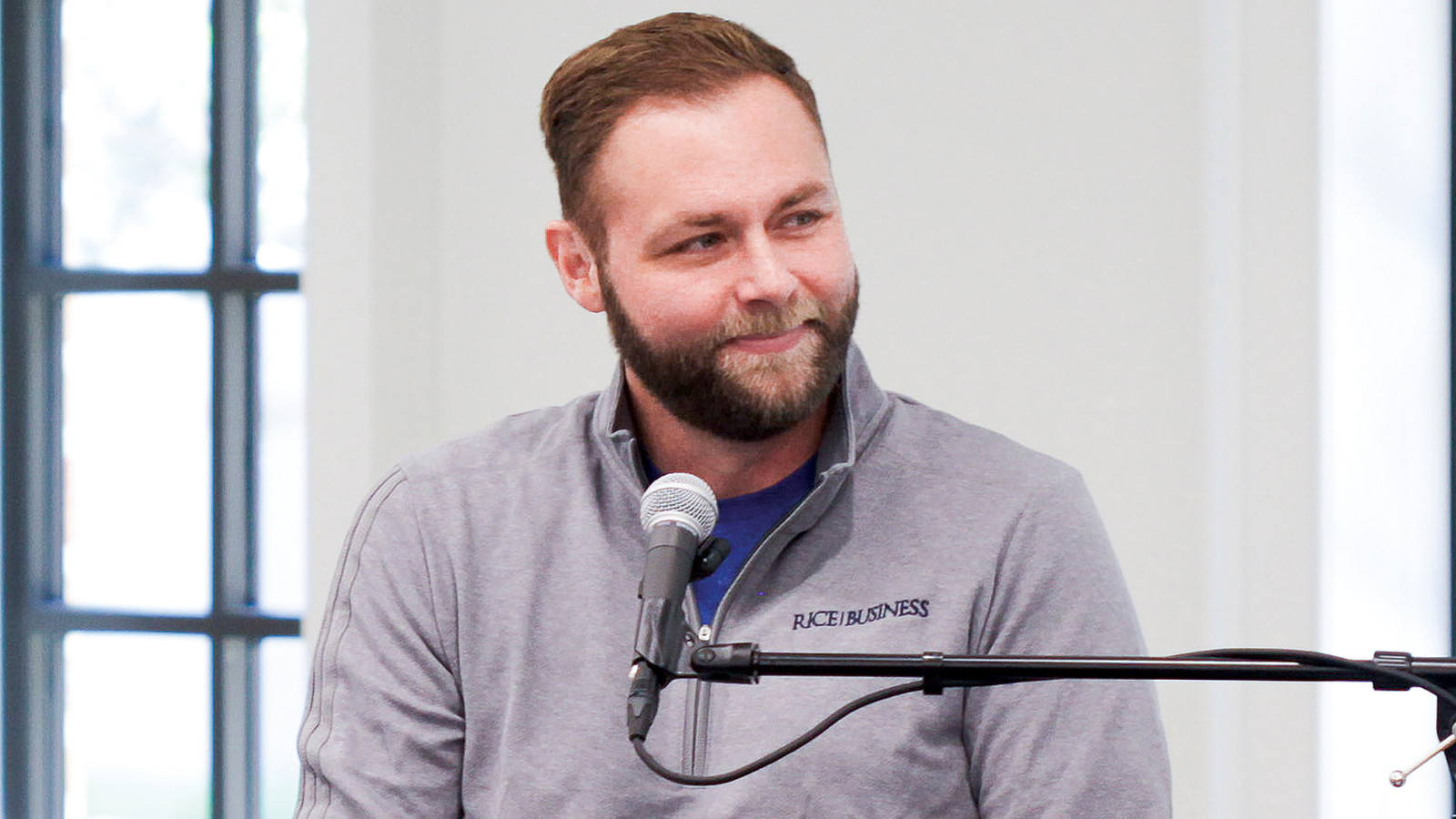
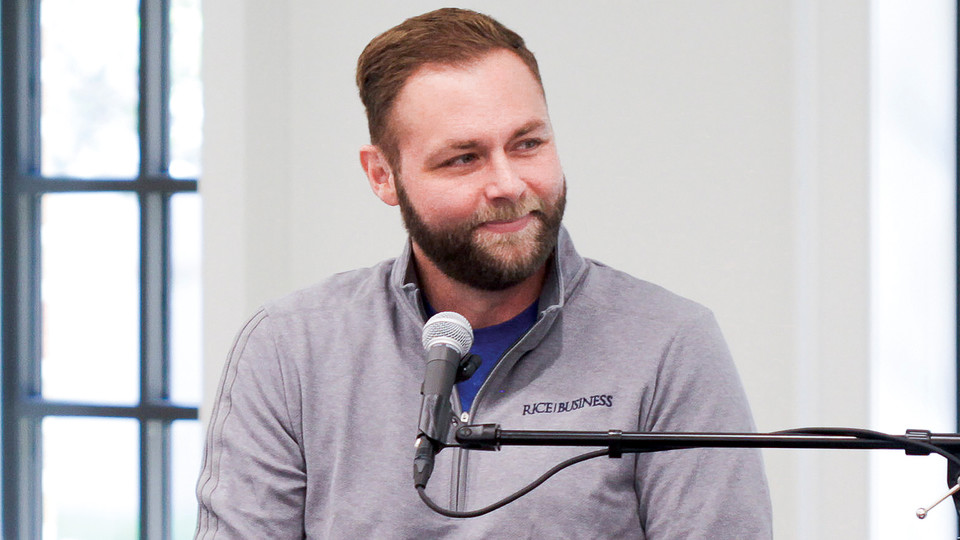
“All we have to decide is what to do with the time that is given us.” — Gandalf, "The Fellowship of the Ring"
If you knew my friend Scott Gale, you know the depth of his unwavering love for J.R.R. Tolkien’s “The Lord of the Rings” and how he truly embodied Gandalf’s words. Throughout his life and even in his death, Scott was deliberate in deciding how to invest each moment of time given to him on this Earth.
Soaking up and relishing every ounce of his big, bold life, Scott was a force. A disruptor. He encapsulated ambition, drive and inspired every soul he met to not only challenge themselves but to think beyond our self-imposed limitations. Scott made things happen. He was a connector.
From the moment you were in his orbit you felt this gravitational, magnetic pull. I felt it the day we were brought together. I felt it the day I had to say goodbye.
Scott and I met the summer after I had earned my Executive MBA, a few years after he earned his. Already engrained in the fabric of Rice Business, Scott had signed on to be a host for the Rice Business podcast, “Owl Have You Know,” and was looking for a co-host to join him. He shared a text blast in a Rice Business chat, not about the podcast specifically, but regarding some “voiceover work.” I suspect he didn’t want to scare anyone off because if he had said “podcast host,” there’s a 100% chance I would have never responded. But I did respond, which led us to a lunch. In the first three minutes of that three-hour lunch, I knew I had just made a friend for life.
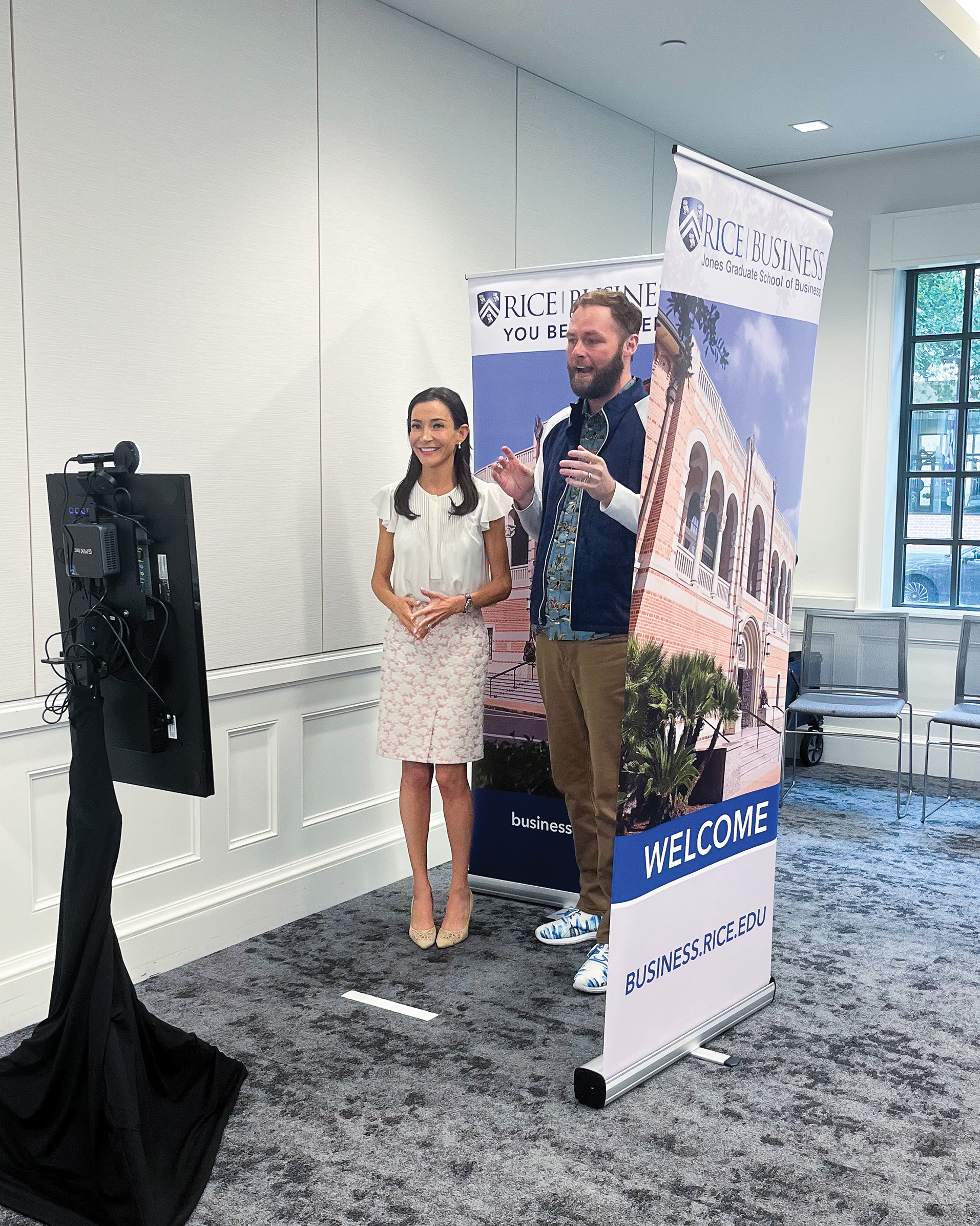
We talked about everything that afternoon. So much in common. So many coincidences. Our paths to Rice were different, but our shared motivation — to start something new, to take a risk — connected us. Little did we know our decision was going to change the trajectory of our lives. Rice was the catalyst that brought us together and gave me the gift of this beautiful, unexpected friendship.
Scott told me about the love of his life, his beautiful wife, Nicole, and his four precious children. About his mom, JoAnna, who was now going back to school to earn the degree she had put on hold to raise her children. She was going to graduate in just a few months, and Scott was so proud he would be there to watch her walk across that stage. I felt like I had known him, and would know him, forever.
I mentioned my broadcasting background and the fact that I had never hosted (or honestly listened to) a podcast. Looking me straight in the eye, he replied in his booming voice, with a smile, “Life’s about taking risks. And I think you have probably taken more than a few.” His assumption led me to laugh. “I hope I make you proud,” I said. He smiled back, “You already have. You’re sitting here with me, aren’t you? And we get to do something super cool together.”
And … we did.
“I do need to tell you something though, since we are friends now,” he paused. “I have Stage IV colon cancer. Not many know, and I would prefer it that way.” My body grew numb. All the air in my lungs escaped. I took a moment and just as my mouth started to open to speak, he stopped me. “I know this is a lot to drop on you, and if you don’t want to do this podcasting thing with me, that’s okay. I understand.”
The person sitting in front of me, beaming with such life and overflowing with energy is going to beat this. He had to.
Scott was engrained in ecosystems, not just at Rice Business or in Houston, but on a global scale. From launching Halliburton Labs, to being the founder of the Jones Student Association for Executives at Rice Business, to serving on its Alumni Association Board and the Rice Alliance Clean Energy Accelerator. Scott was a titan, remarkable in every way. A mentor, adviser and investor, Scott had this insatiable love for innovation.
Though I met Scott at the end of his life, he changed the rest of mine. His struggles didn’t define him. He defined himself. He did things on his terms. In his time. And when the time came for him to step away, when he knew his time was coming to an end, he left us with a final powerful inspiring message of optimism and hope, which could have come from the words of Tolkien.
“Now go out and live a life that echoes! Onward!”
I will do my best, my friend. I hope I make you proud.
Hear more about Gale's lasting impact on our school in a special tribute episode of our podcast:
You May Also Like
Keep Exploring
Office Space
Inside the Office of Tommy Pan Fang.
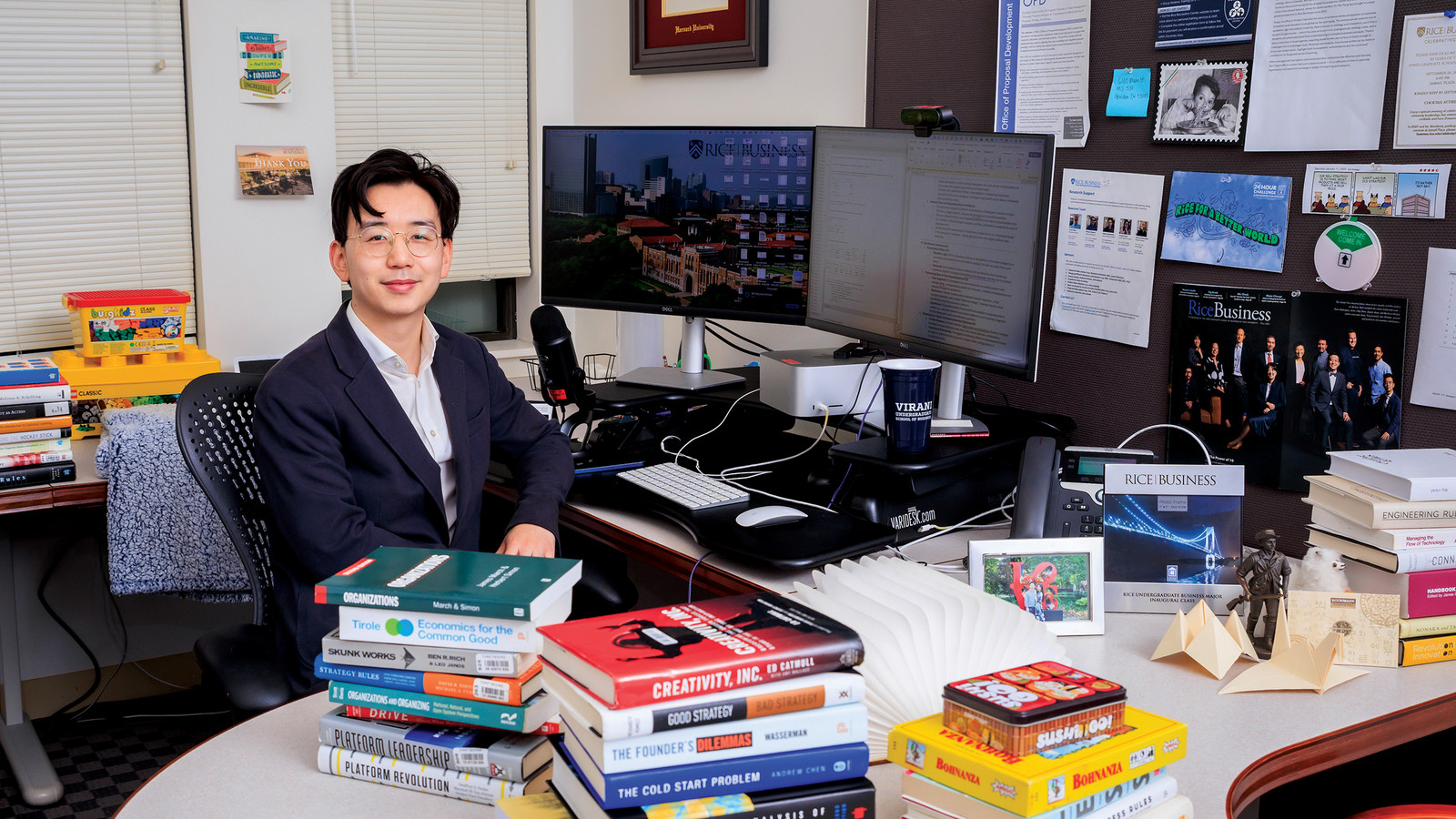
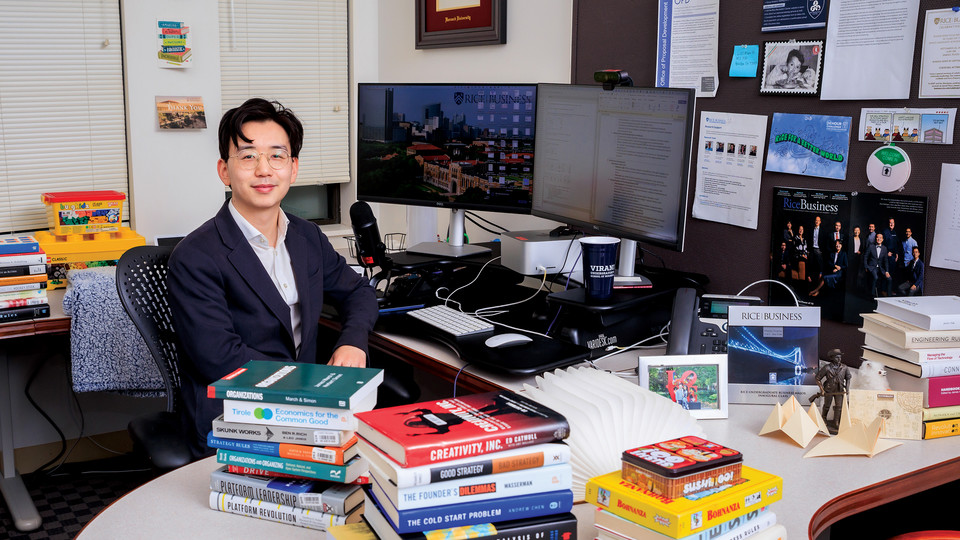
Named one of Poets&Quants “Best Undergraduate Business Professors” in 2024, Tommy Pan Fang, assistant professor of strategic management, is teaching the next generation of business leaders using Lego bricks, board games and a uniquely global perspective.
Step into Tommy Pan Fang’s office at McNair Hall, and you’ll find more than just a workspace. His office reflects his dynamic approach to teaching — blending research, strategy and interactive learning. Here are some of the objects he uses to transform abstract business concepts into memorable, real-world applications.
- Lego bricks and board games. In Pan Fang’s office, ideas take shape, students think critically and strategy comes to life. Visitors might find themselves in a strategic duel over a board game or assembling a Lego model to explain a business insight. “The best lessons rarely come from textbooks alone,” he says. “I want students to leave my class with more than just knowledge — I want them to have the confidence to apply it.”
- A tote bag of two-liter sodas. Against the wall sits a mysterious tote bag of two-liter sodas — not an emergency caffeine stash, it turns out, but props for a hands-on lesson in market research and brand positioning. “You should see students’ faces when they hear we’re doing a taste test,” he chuckles. “But they’ll remember that lesson better than any slide deck.”
- Student thank-you cards and conference name tags. Markers of his career and relationships sit next to books by his mentors from Penn and Harvard, telling a clear story of his teaching and research journey. “The best ideas often come from conversations,” he says, “whether with students or peers. Those exchanges push my thinking and keep my work relevant.”
- Personal memorabilia of a global perspective. Pan Fang has always seen the world through a wide lens — probably because he grew up with one. Born in Canada and raised in China and Italy, he absorbed different cultures and ways of thinking. Next to his monitor are a llama figurine from Ecuador and a postcard from Rome. “A global perspective isn’t just about geography,” he says. “It’s about understanding different ways of solving problems and seeing the world.”
That philosophy is reflected in his office, a space designed for exploration. Whether it’s a board game that challenges strategic thinking, a Lego set that sparks creativity or an unexpected lesson involving soda, Pan Fang ensures business strategy isn’t just a way of thinking — it’s a way of experiencing and shaping the world.
Learn more about Poets&Quants Best Undergraduate Business Professors ranking here.
Keep Exploring
On The Rice Track: Net-Worth Networking
Rice MBA Mercedes Moncada-García shares the best practices for making connections and building relationships in business school.
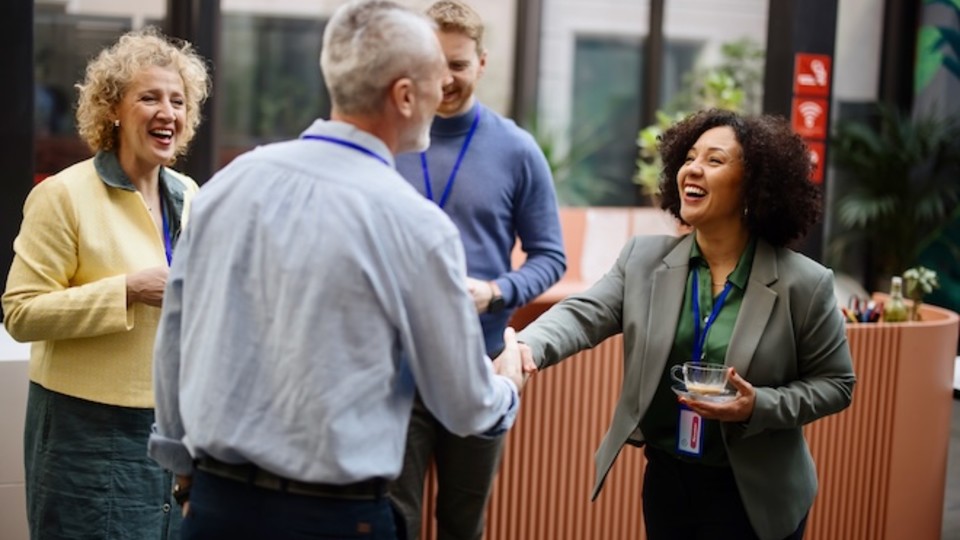
What Makes a Legacy?
For the Viranis, legacy is about family, hope, and the promise of future generations. It is also something created through everyday actions and interactions.
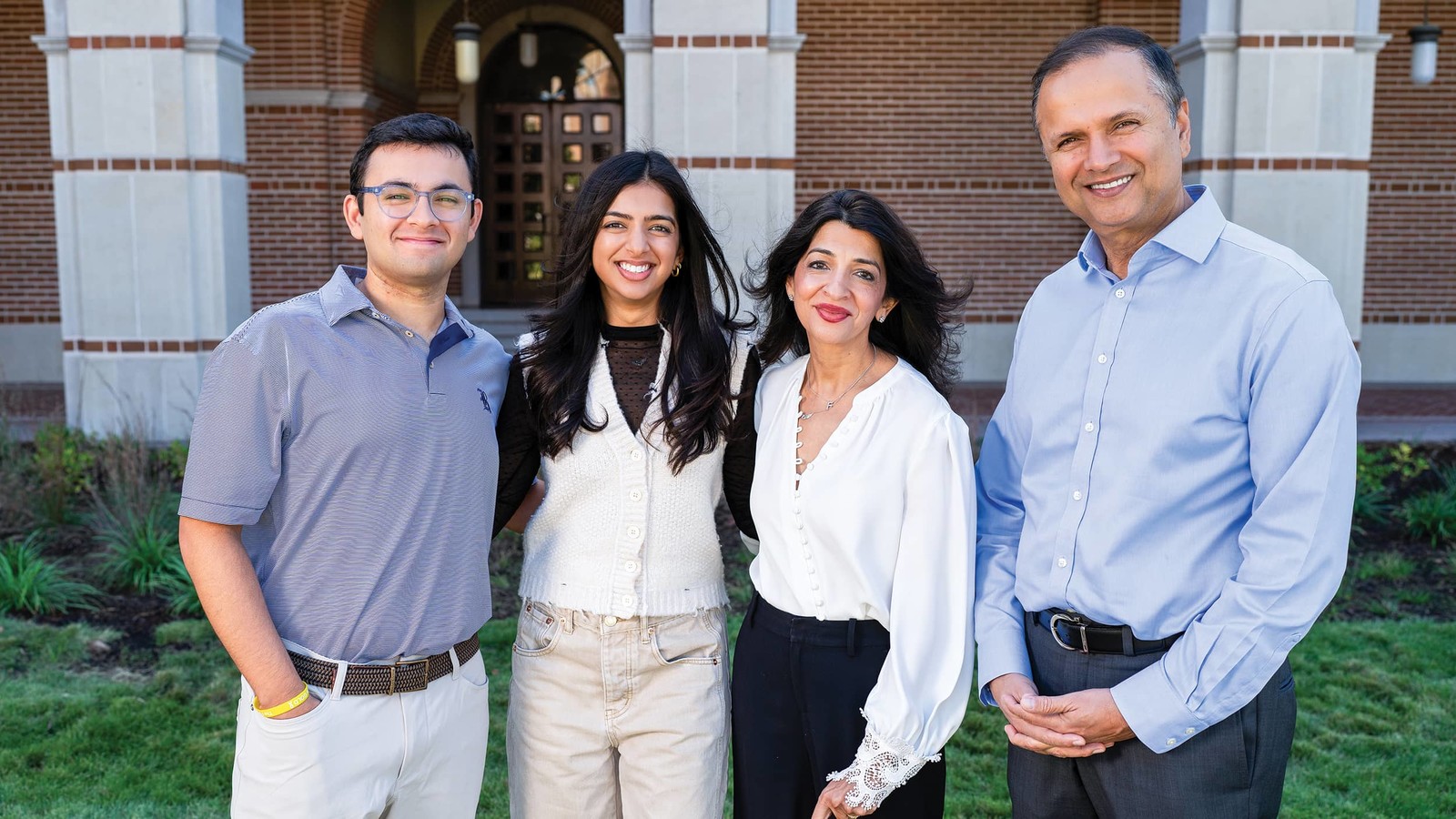
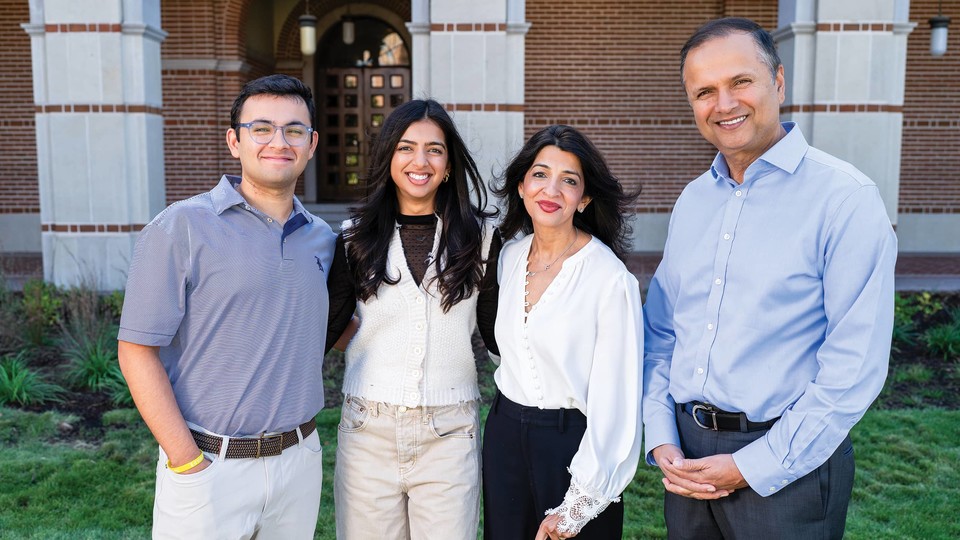
For the Viranis, legacy is about family, hope, and the promise of future generations. It is also something created through everyday actions and interactions.
In October, Rice Business celebrated a new name for its undergraduate program: The Virani Undergraduate School of Business. The name is in recognition of a historic gift to Rice Business from Houston business and community leaders Farid and Dr. Asha Virani (B.A. ’89 ), which will support undergraduate curriculum development and delivery, cocurricular opportunities, a new associate dean position and other resources for undergraduate career readiness and academic success. The undergraduate major was launched in 2021.
More than just a name, the Virani Undergraduate School of Business reflects a shared commitment to undergraduate education and belonging — values championed by the Virani family.
We asked the Viranis — Farid, Asha, and their children, Zoya and Faraz (B.A. ’21) — to tell us a bit about the family behind the Virani Undergraduate School of Business.
Here’s what they shared …
On love …
Farid: Meeting Asha was the highlight of my life. Rice played a big role in that, and that’s why we’re so close to the school. Our first official date was on Feb. 13, 1989. In the ’80s, radio stations used to run contests. If you were caller number 10 or caller number 20, you would win a prize. It was Valentine’s weekend, and 104.1 KRBE ran a contest. Caller number 10 would win this Valentine package. So I started dialing, and somehow stars aligned, and I was a winner. The package included flowers, chocolate, dinner and a movie.
Asha: How could I say no to such a fabulous night out? Farid and I met by happenstance and have had the most amazing love story. Feb. 13 is very special to us. In fact, we don’t even celebrate Valentine’s Day — we celebrate each other the day before. That is why we held an event on campus on Feb. 13 to celebrate the naming. It was important to us that it be held on that date, because it represents the beginning of our story together.
On Houston …
Farid: I came to the U.S. from Pakistan when I was 19 years old, and like a lot of American immigrant stories, I was fortunate enough to end up in Houston, which allowed me not only to go to school, but to start on my entrepreneurial journey. Prime Communications is the business I started back in 1999 with one store in Baybrook Mall, and today we do business all over North America. Prime’s journey started with one store, but we partnered with AT&T, which allowed us to grow organically, slowly, early on. As time passed, we were able to make some strategic acquisitions, and that allowed us to grow our business.
Asha: I came to Houston when I was 4 years old, and later decided to spend my life here. I was lucky enough to go to Rice, which then brought me to Baylor College of Medicine, and then to practice medicine in this great city. Houston is special. I believe it’s the city that brings out the best in people — it definitely brought out the best in me.
Rice has always had a reputation of excellence, of academic rigor, but the residential college system really gave me a sense of belonging. To my father, Rice was the ultimate school. And obviously, as a young girl, I wanted to make my parents proud. My decision to attend Rice was one that would allow me to stay close to my family and have the best education the country offers.
Faraz: I think this gift — and everything it encapsulates — really represents how my parents, my family, feels about the city of Houston and Rice. This city has done a lot of good for our family over the years and will do a lot for generations. We’re a Houstonian family — I don’t plan on that changing anytime soon.
On family …
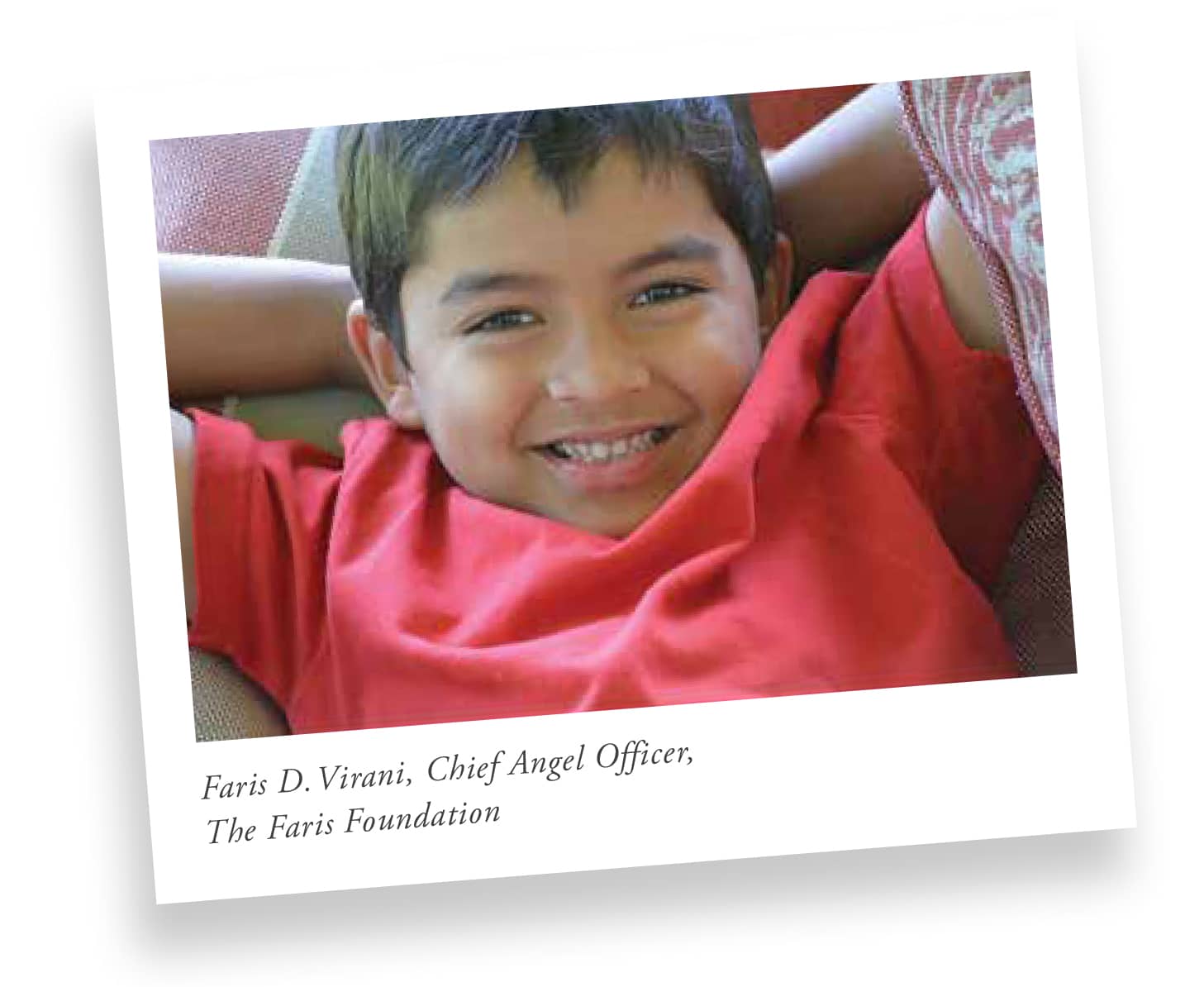
Asha: It has been a very graced life for me, having met Farid and been part of seeing him grow, seeing him be the success that he is, seeing how humble he is, and understanding what success means to him. It’s been a very blessed journey for our family. My greatest successes are my children: Faraz, who’s a Rice alum; Zoya, who went to Emory; and our beloved angel, our forever 9-year-old, Faris D. I have three beautiful children: two on Earth and one in heaven as my guiding light.
We started the Faris Foundation in our son’s honor. It comes from a place of deep love, of faithfulness and of abiding hope. Our goal at the foundation is singular: It is to bring brighter days and better treatments to children with cancer. Faris D. is the Chief Angel Officer of the foundation. His light guides us in our programs, and it inspires and informs everything we do. I often tell people that heaven and Earth are working together, and so it’s a privilege of a lifetime for me to be able to co-lead this foundation with my son.
On the power of education …
Farid: Asha and I have always believed in the power of education to transform lives. True education must be built on ethics, adaptability and empathy, preparing us to navigate a constantly changing world. This belief is deeply rooted in our family’s values, guided by our faith and its principles. Rice holds a very special place in our hearts. It is a university that doesn’t just focus on academic achievement — it develops extraordinary students who go on to change the world.
On philanthropy …
Farid: I believe that giving back is not just a privilege, it is a duty. Personal success means nothing unless it is used to serve others.
On legacy …
Zoya: Legacy is a component that is very important for me. Business schools and undergraduate schools across the U.S. don’t often represent our story and our name. And so, for me, it was important to represent my dad’s story, our family story, of immigrating to the U.S. These stories are important for people like us to see — that you can make it in Houston, you can make it in America.
Asha: For us, this gift represents the legacy of our family — for the five of us and for generations to come — so the decision was not made lightly. We decided that this was the right thing to do because we believe in Rice, we believe in the leadership at Rice, and most importantly, we believe in the students at Rice.
We’ve always taught our children about legacy. Legacy for our family is about recognizing that during every single encounter you make, with every single person you meet, you are giving them a part of you and you are accepting a part of them. So I never think of legacy as something you’re leaving. I think legacy is something you create every single day in the way you live and interact and engage in the world.
On vision …
Farid: We have no doubt that the Virani Undergraduate School of Business will become a hub of inspiration, resilience and opportunity — a place where students will be encouraged to think boldly, act ethically and lead with purpose.
Get to Know the Virani Family and The Virani Undergraduate School of Business
Keep Exploring
Introducing the Analytics, Consulting and Technology (ACT) Rice x Bain Case Competition
Hosted by the Analytics, Consulting and Technology (ACT) club, the competition united undergraduate students for a week-long, high-stakes business challenge in partnership with Bain & Company.
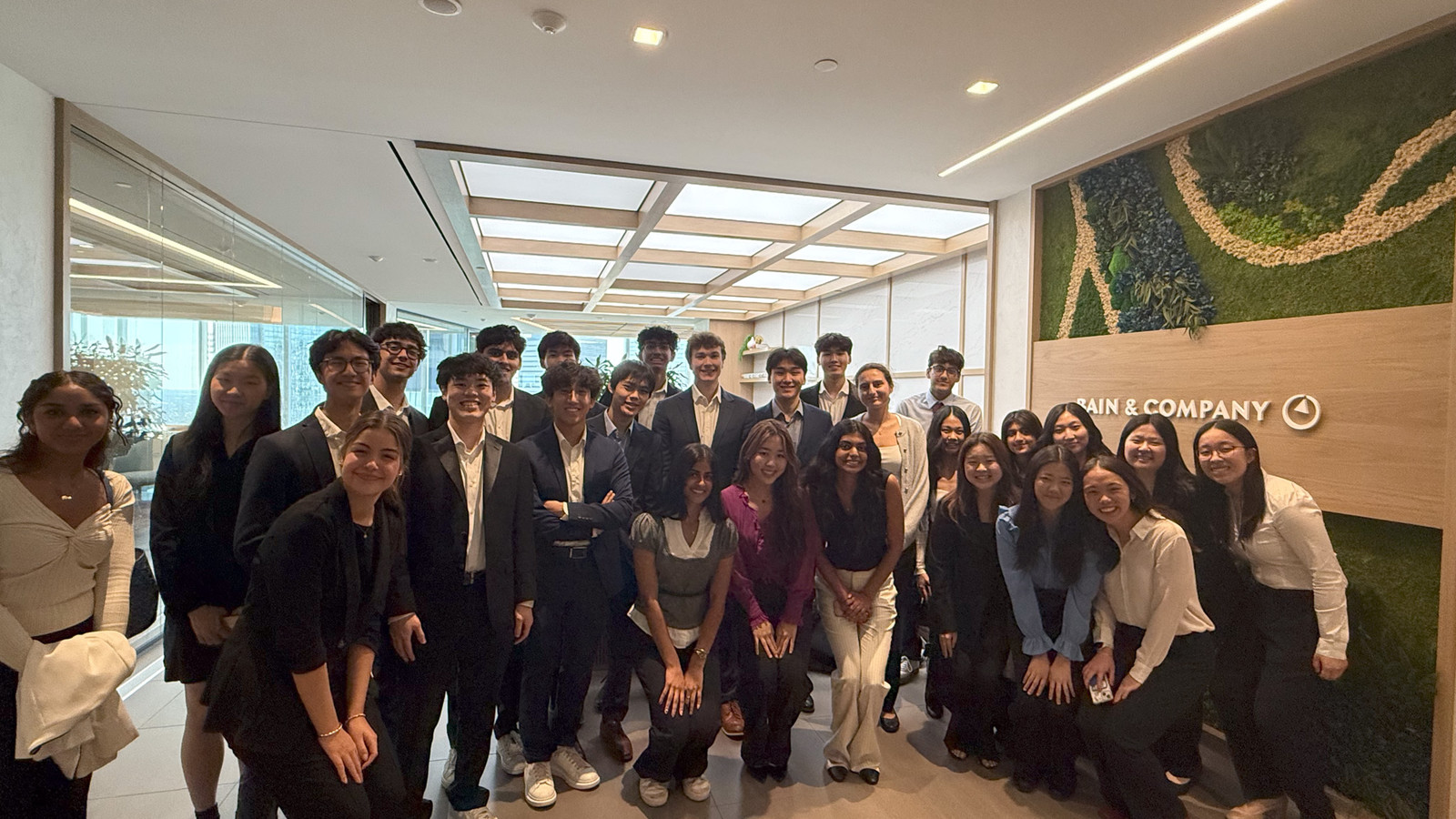
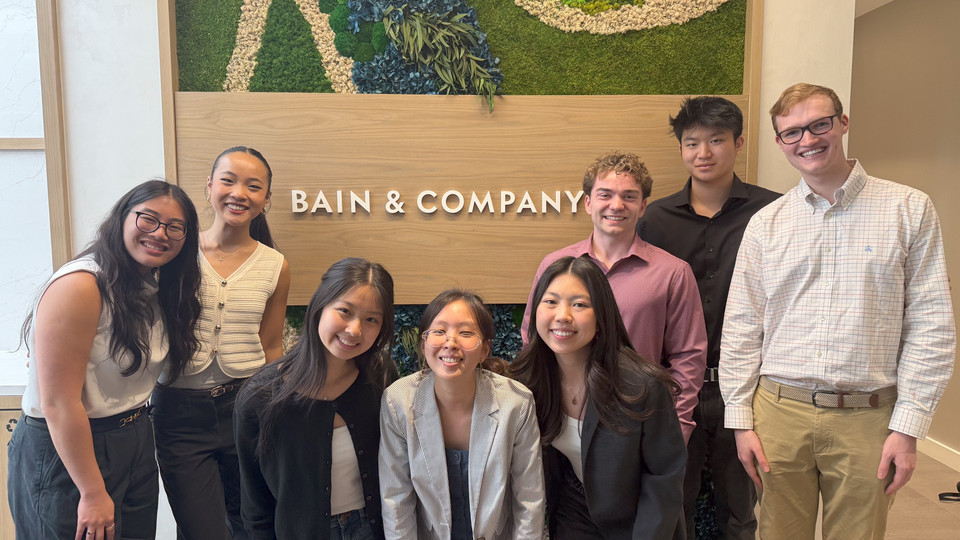
What does it take to develop a winning business strategy? In February, undergraduates put their skills to the test at the first-ever ACT Rice x Bain Case Competition.
Hosted by the newly founded Analytics, Consulting and Technology (ACT) club, the competition united undergraduate students for a week-long, high-stakes business challenge in partnership with Bain & Company. Organized by Joyce Zhang ’26, Laura Li ’26, Alexandre Cantin ’26 and Erica Friedman ’25, the inaugural event welcomed 32 students, eight teams, four Bain mentors, two judges and one winning team from Rice University.
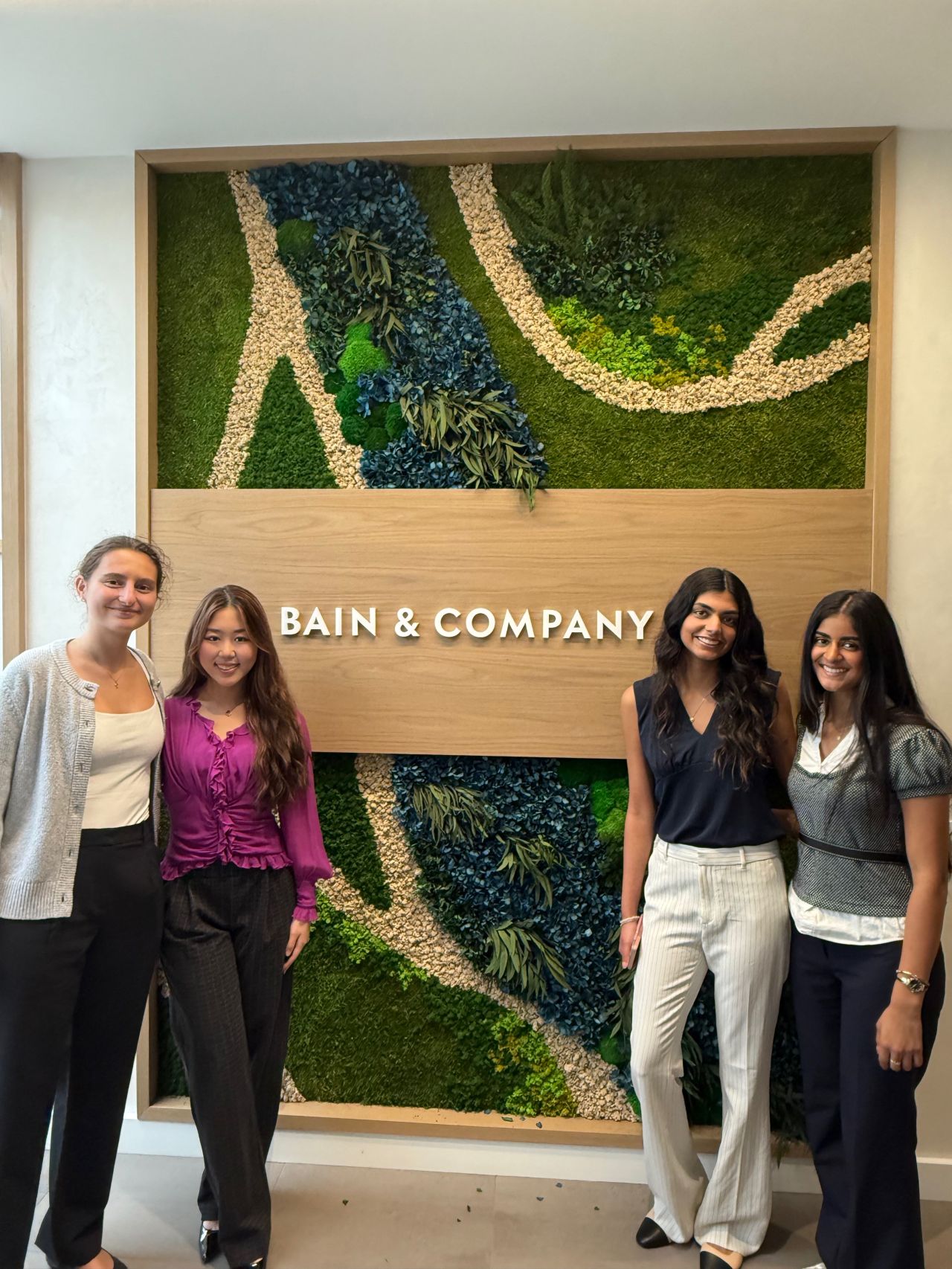
Pinning Down the Win
During the competition, each team partnered with an experienced Bain consultant to solve a simulated business challenge based on real-world issues: How could “Fashion Co.,” a fictional fast fashion brand, adapt to shifting consumer demand for more eco-friendly practices?
We asked the winning team to share their tips and insights for tailoring the perfect strategy. The team featured Rice students Kavya Narang ’27 (business finance, cognitive science and data science), Diya Vettical ’27 (business and data science), Lucy Cai ’27 (business finance, cognitive science and data science) and Emma Berdou ’27 (electrical and computer engineering and business). Here’s what they said.
Q: What motivated you to participate in the competition?
A: Our team was excited to participate because it gave us a unique opportunity to tackle a real-world business problem at a high level. This competition was a great way to push ourselves, gain hands-on experience, connect with professionals in the industry and test our skills in a competitive setting.
Q: How did you prepare for the competition?
A: We focused on sharpening our problem-solving approach by practicing case frameworks and studying similar companies, as well as refining our communication and presentation skills. We had each participated in a case competition before, but we prioritized adapting and learning from one other.
Q: What was your biggest takeaway from the experience?
A: Our biggest takeaway from this experience was how important it is to all be on the same page. Before we began strategizing, we spent a lot of time talking through our ideas — and when our methods were questioned, we were all prepared to explain our decisions. Ultimately, this early work helped us stand out and develop a winning strategy.
Q: What was the most important factor in your success?
A: We each made a commitment to the competition and were willing to make compromises — which meant finding time to work together during even the busiest weeks.
Q: How has winning the competition impacted your goals?
A: Winning made us more confident about pursuing team-based strategy roles, and the ACT case competition also opened doors to numerous potential mentorship and job opportunities.
ACT Today, Lead Tomorrow
Founded just three years ago, ACT is already making a lasting impact by offering students hands-on learning opportunities — no matter their field of study. As the undergraduate programs at Rice Business continue to grow, the organization is equipping students with the skills, experience and network for successful careers in consulting through events like the ACT Rice x Bain Case Competition.
“This opportunity allowed us to be creative and competitive at the same time,” shared the competition winners. “That made us even more excited to begin our careers in consulting.”
You May Also Like
Keep Exploring
Intero Biosystems from University of Michigan wins Rice Business Plan Competition
Intero Biosystems — a life science company that has developed the first cell-derived human “mini gut” replicating cell types, spatial structure and function of the human intestine — took home the grand prize at the 2025 Rice Business Plan Competition.
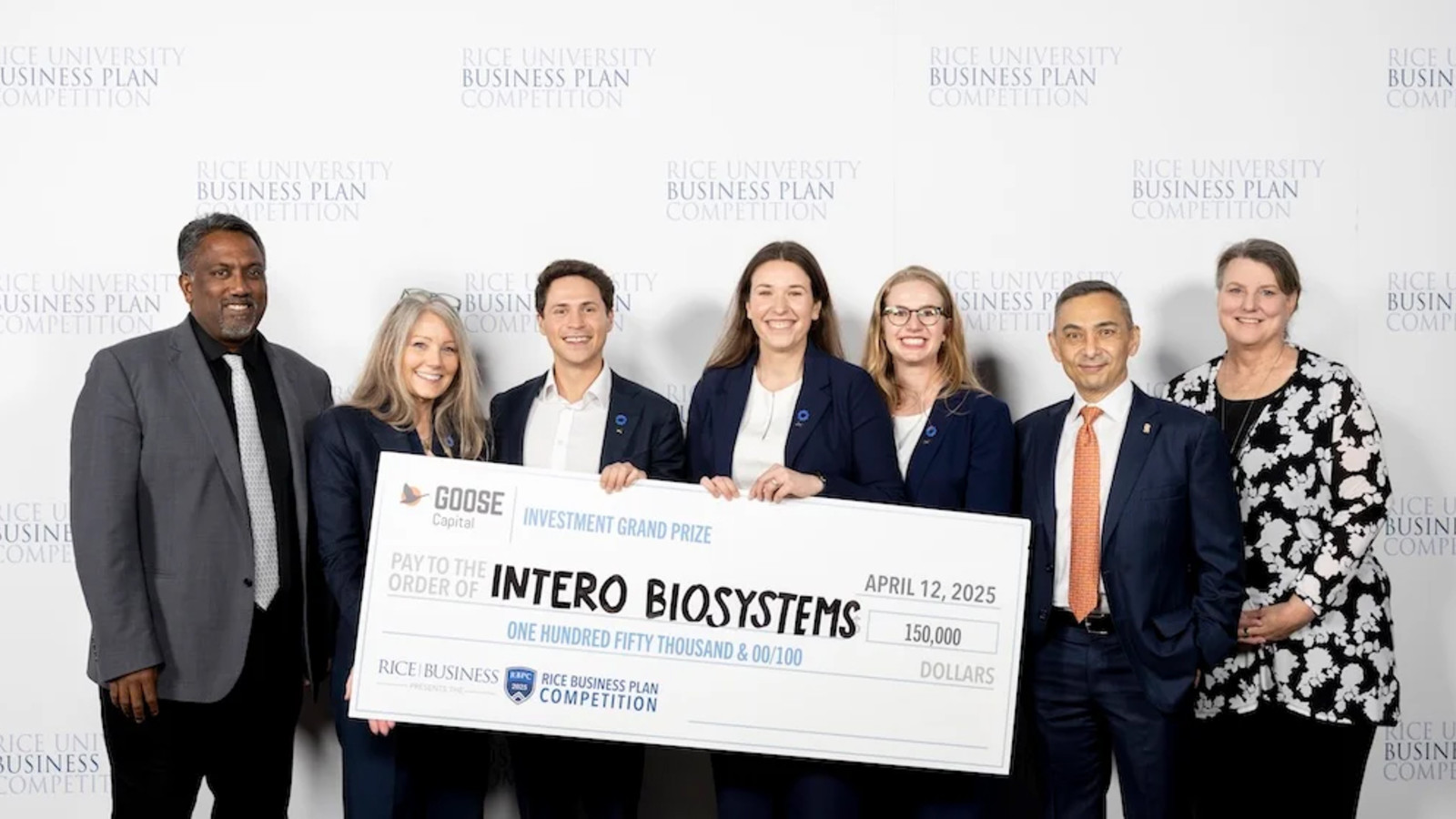
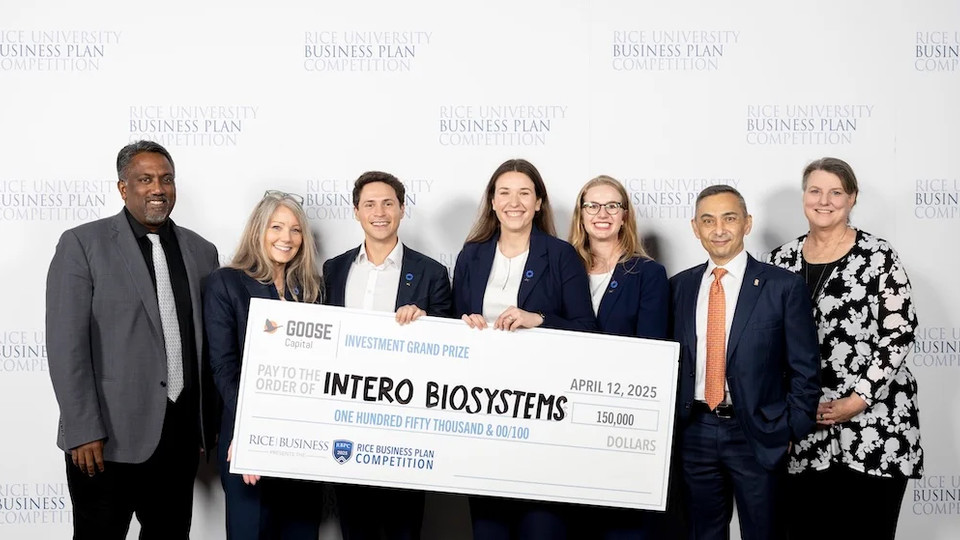
Rice Business presents world’s largest and richest student startup competition
Intero Biosystems — a life science company that has developed the first cell-derived human “mini gut” replicating cell types, spatial structure and function of the human intestine — took home the grand prize at the 2025 Rice Business Plan Competition. The company’s product, Gastroscreen, includes the intestinal lining and supporting tissues, creating a complete mini-organ “in a dish” for comprehensive safety and efficacy testing.
The RBPC is the world’s largest and richest intercollegiate student startup competition and is hosted annually by the Rice Alliance for Technology and Entrepreneurship. In honor of the business school’s 50th year, the competition’s 25th year and its contribution to the school’s strong reputation for entrepreneurship, Rice Business was the presenting sponsor of the event.
“For 25 years, the Rice Business Plan Competition has helped shape how Rice Business shows up in the world by creating a platform where student-entrepreneurs can tackle some of the most complex challenges of our time in energy, in health care, in technology and beyond,” said Peter Rodriguez, dean of Rice Business. “If we’re serious about changing the world — and I believe we are — then it’s our responsibility to open doors for students everywhere to imagine bold solutions and build what comes next.”
Since 2001, the RBPC has offered students real-world experiences and insights into what it takes to craft a business strategy and successfully launch a company. Participants compete not only for cash but for investments and in-kind prizes. While each team left the competition with cash in hand, the spirit of the event lies in the mentorships and connections formed among students, investors and experienced entrepreneurs. During the competition’s 25 years, 910 startups have raised more than $6.9 billion in capital.
The three-day event took place at both McNair Hall and the Ion, the hub of Houston’s innovation district powered by Rice. The competition included an elevator pitch competition, practice round, semifinals and wildcard and final rounds. Between pitches, RBPC teams enjoyed networking and mentorship opportunities, gaining applicable knowledge for their startups. Four hundred judges, including active investors, successful entrepreneurs and other members of the Houston business community, contributed this year — marking the largest judge participation in the competition’s history. Winners were announced at the company showcase and awards ceremony in downtown Houston April 12.
“Over the past quarter century, this competition has grown into the largest and richest student startup competition in the world, but even more importantly, it has become a symbol of Rice’s deep commitment to bringing innovation to life,” Rice President Reginald DesRoches said during his remarks at the awards celebration. “At Rice, we believe that ideas are just the beginning. Our mission is to foster an environment where bold ideas are not only imagined but nurtured, tested and brought into the world to have real impact.”
This year’s 42 graduate student-led startups were selected from 550 applicants — the event’s largest applicant pool to date — and represented 34 universities across four countries. Teams pitched their cutting-edge solutions in categories including energy, cleantech and sustainability; life sciences and health care; hard tech; digital enterprise; and consumer products. Read more about the competing startups here.
Based on the judges’ overall scores, the seven finalists were:
- Intero Biosystems, University of Michigan — first place and the $150,000 Goose Capital Investment Grand Prize with a total of $902,000 in prizes.
- Intero Biosystems has developed GastroScreen, the first stem cell-driven human “mini gut” that is ideal for organ function testing before testing on humans.
- Intero Biosystems has developed GastroScreen, the first stem cell-driven human “mini gut” that is ideal for organ function testing before testing on humans.
- MabLab, Harvard University — second place and the $100,000 Investment Prize, sponsored by David Anderson, Anderson Family Fund, Jon Finger and Finger Interests, with a total of $301,500 in prizes.
- MabLab has created the first rapid test capable of detecting multiple adulterants in laced drugs and spiked drinks.
- MabLab has created the first rapid test capable of detecting multiple adulterants in laced drugs and spiked drinks.
- Re.Solution, RWTH Aachen University — third place and the $50,000 Investment Prize, sponsored by David Anderson, Anderson Family Fund, Jon Finger and Finger Interests, with a total of $76,500 in prizes.
- Re.Solution is revolutionizing polyester recycling with its water-based technology that works without generating salt waste, making textile recycling viable.
- Re.Solution is revolutionizing polyester recycling with its water-based technology that works without generating salt waste, making textile recycling viable.
- Pattern Materials, Rice University — fourth place and the $5,000 prize, sponsored by Norton Rose Fulbright, with a total of $134,500 in prizes.
- Pattern Materials’ laser-induced graphene technology is a simple one-step process that can be rapidly performed, thereby enabling low-cost scalable production.
- Pattern Materials’ laser-induced graphene technology is a simple one-step process that can be rapidly performed, thereby enabling low-cost scalable production.
- Xatoms, Western University and University of Toronto — fifth place and the $5,000 prize, sponsored by EY, with a total of $30,000 in prizes.
- Xatoms has built the world’s largest AI- and quantum-driven platform for discovering solar-activated semiconductor materials.
- Xatoms has built the world’s largest AI- and quantum-driven platform for discovering solar-activated semiconductor materials.
- Mito Robotics, Carnegie Mellon University — sixth place and the $5,000 prize, sponsored by Chevron Technology Ventures.
- Mito Robotics is accelerating life science research by automating manual cell culture with artificial intellegence-powered robotic scientists.
- Mito Robotics is accelerating life science research by automating manual cell culture with artificial intellegence-powered robotic scientists.
- FarmSmart.ai, Louisiana State University — seventh place and the $5,000 prize, sponsored by Shell Ventures, with a total of $106,000 in prizes.
- FarmSmart.ai is an AI — agriculturally intelligent — driven assistant that synthesizes vast agricultural research into actionable tailored intelligence.
Additional significant prizes and the winnings teams include:
- $250,000 Goose Capital Investment Prize — Intero Biosystems, University of Michigan
- $150,000 Goose Capital Investment Prize — GreenLIB Materials, University of Ottawa
- $200,000 The OWL Investment Prize — Intero Biosystems, University of Michigan
- $100,000 The OWL Investment Prize — FarmSmart.ai, Louisiana State University
- $100,000 Houston Angel Network Investment Prize — Intero Biosystems, University of Michigan
- $100,000 The Indus Entrepreneurs (TiE) Texas Angels Investment Prize — MabLab, Harvard University
- $100,000 nCourage Investment Network’s Courageous Women Entrepreneur Investment Prize — Intero Biosystem, University of Michigan
- $25,000 nCourage Investment Network’s Courageous Women Entrepreneur Investment Prize — Xatoms, Western University and University of Toronto
- $25,000 nCourage Investment Network’s Courageous Women Entrepreneur Investment Prize — MabLab, Harvard University
- $100,000 Investment Prize from Nancy Chang — Intero Biosystem, University of Michigan
- $50,000 Valhalla Investment Network Investment Prize —Pattern Materials, Rice University
- $50,000 Valhalla Investment Network Investment Prize —MabLab, Harvard University
- $25,000 Pearland EDC Spirit of Entrepreneurship Cash Prize — Re.Solution, RWTH Aachen University
- $25,000 Pearland EDC Spirit of Entrepreneurship Cash Prize — Pattern Materials, Rice University
- $25,000 New Climate Ventures Sustainable Investment Prize — Pattern Materials, Rice University
- $25,000 NOV Golden Ticket to Supernova Accelerator and Cash Prize — Nanoborne, University of Texas at Austin
- $25,000 Southwest National Pediatric Device Consortium Pediatric Device Cash Prize — Microvitality, Tufts University
- $25,000 Amentum and WRX Companies Rising Stars Space Technology and Commercial Aerospace Cash Prize — Pattern Materials, Rice University
- $25,000 The Eagles Investor Investment Prize — MabLab, Harvard University
- TMC Innovation Healthcare Accelerator Bootcamp Invitation Prize — Intero Biosystems, University of Michigan
All finalists are awarded the Baker Botts In-Kind Legal Services Prize.
To learn more about the 2025 Rice Business Plan Competition, visit rbpc.rice.edu.
You May Also Like

Rice University’s Jesse H. Jones Graduate School of Business today announced the launch of its Graduate Certificate in Healthcare Management program, a 10-month, credit-bearing professional credential designed for current and aspiring leaders seeking deep expertise in the business of healthcare.


